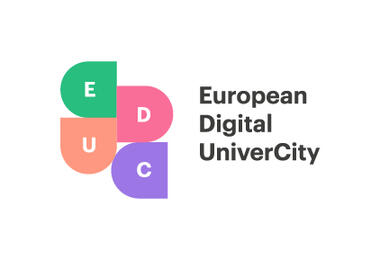The EDUC consists of 8 European universities and the USN is the only Norwegian educational institution included. Universities from Germany, Hungary, the Czech Republic, Spain, Italy, France - and now Norway - are members of the alliance.
The alliance is an important part of the EU's strategy to improve European education and research. It is tasked with helping to enhance the quality of education and research, increase the mobility of students and employees in Europe and work towards achieving an integrated European university where values such as inclusion, diversity, equality, human rights and democracy are key.
"Working with other European universities that are seeking to enhance knowledge and values such as diversity and democracy is perceived as being more valid than ever. Moreover, EDUC universities are closely linked to their regions, thus contributing to local developments. This ties in well with the USN's strategy," says USN Rector Petter Aasen.
Regional development
The EDUC alliance aims to engage in collaboration on digitalisation, student and employee mobility, links between education, research, innovation and partnerships and the development of those regions surrounding the universities (industry, working life, businesses and the public sector), etc.
The eight institutions will be applying jointly for EU funding under the European University Initiatives (EUI) funding scheme. The objective of the EUI scheme is to create larger, robust university alliances that can cooperate strategically in various areas in order to strengthen and support quality in education, research and innovation in Europe. The EDUC alliance has received funding for three years and is now seeking support for a further four years. They are also expanding by including two new universities, one of which is the USN.
Submitting an EU application in March
The University of Potsdam coordinates the EDUC alliance and the USN and the Spanish university, Universitat Jaume I, are now joining the alliance. The USN was invited to join the alliance in December 2021.
"We are very proud to see the alliance grow and would like to welcome two strong partners from Spain and Norway. Universitat Jaume I and the University of Southeast Norway are a natural match for the EDUC in their respective regions. They support our vision and mission to shape the future of higher education in Europe," says Professor Oliver Günther who is the President of the University of Potsdam and coordinator of the EDUC alliance.
In cooperation with the seven other partner institutions, the EDUC is now preparing a major application for the EU framework programme for education, sport and youth. Work is being carried out on six large work packages that support development areas such as education, research, innovation and cooperation with regional areas and businesses. The deadline is 22 March and employees in different parts of the organisation are participating in this work which is being coordinated by the Section for Internationalisation at the USN.
The alliance will receive a response from the EU in July and the project will commence at the end of 2022/beginning of 2023 if the EU approves its application.

